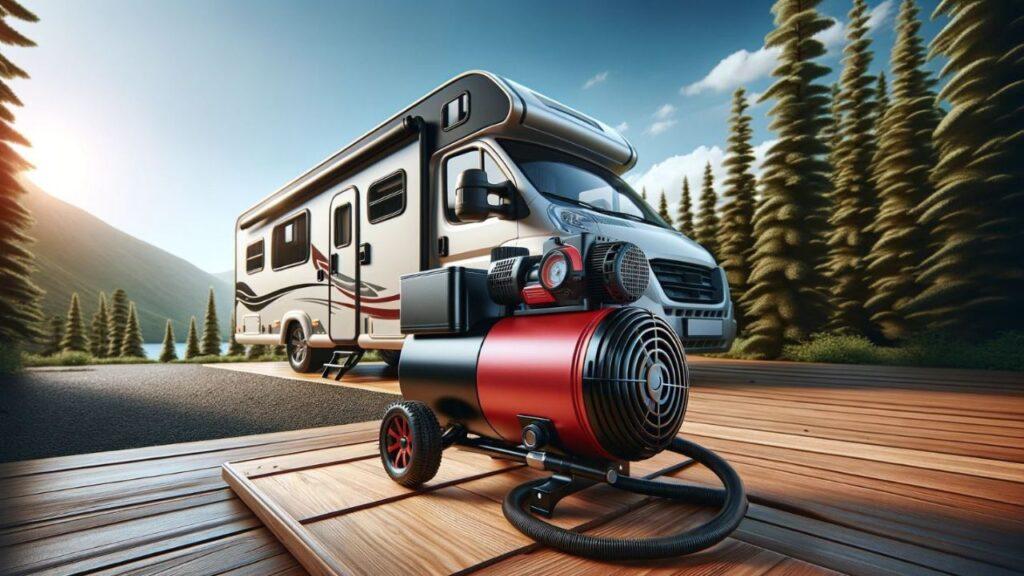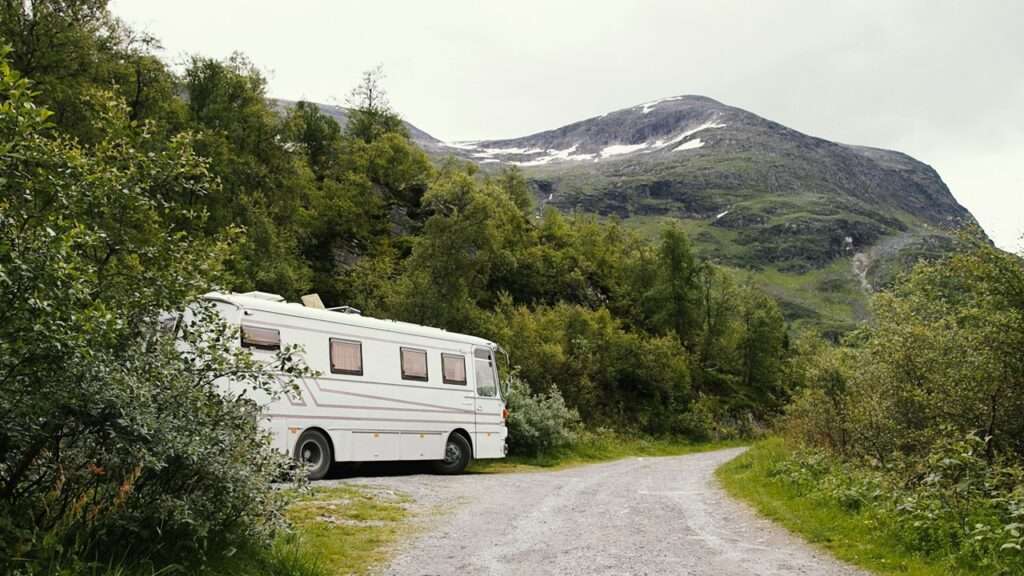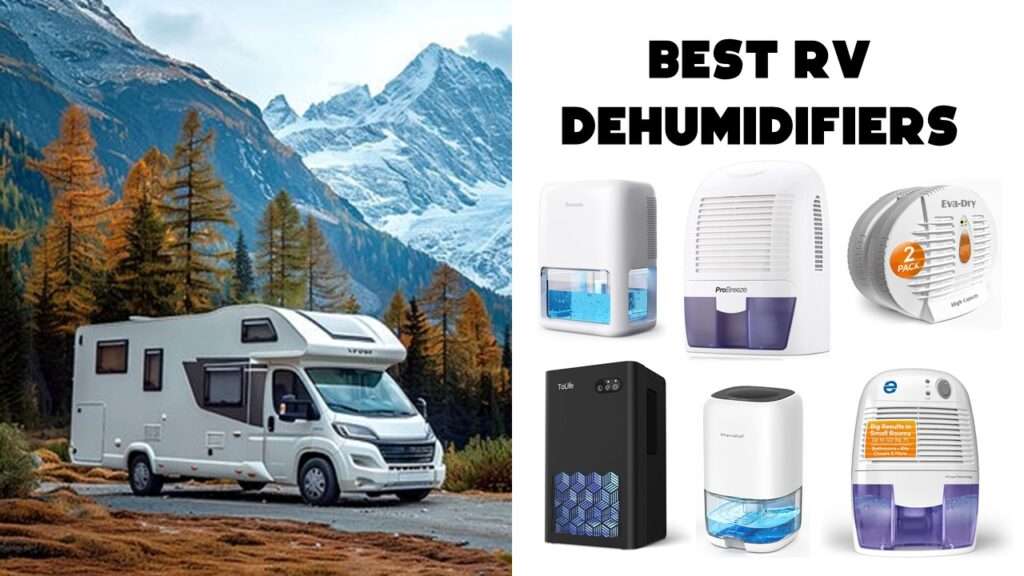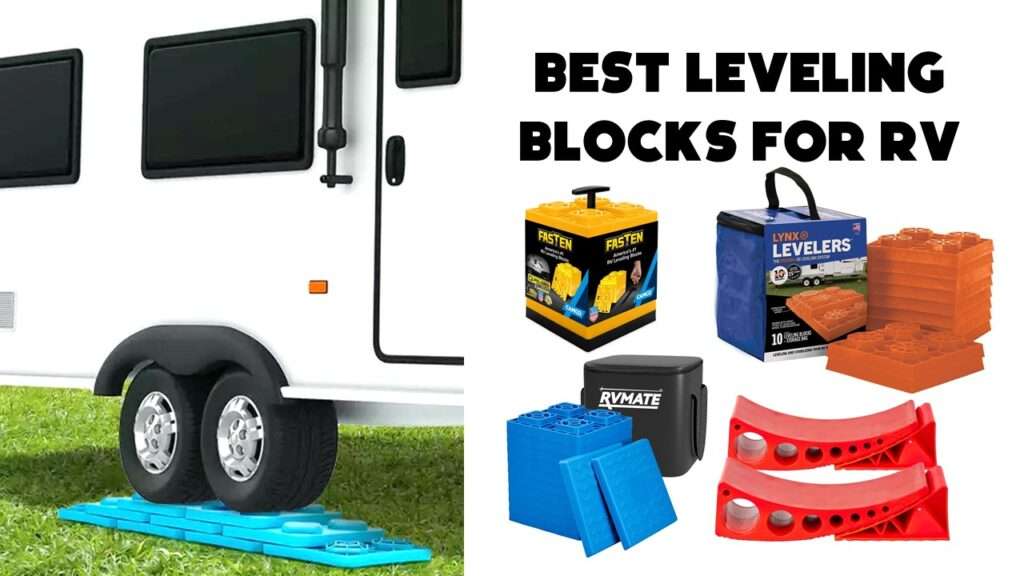If you are looking for the best RV water pump for steady pressure, quiet operation, and long-lasting performance, this guide is for you. After testing the top 12V and 115V RV water pumps from trusted brands, we found the models that deliver reliable flow, work quietly, and are easy to install—making your travels more comfortable and maintenance-free. And for the cleanest water possible, pairing your pump with a high-quality RV water filter ensures safe, great-tasting water at every stop.
We’re reader-supported. When you buy through links on our site, we may earn an affiliate commission. As an Amazon Associate, we earn from qualifying purchases, at no extra cost to you.
Best RV Water Pump: Our Top Picks
- Best Overall: Lippert Components Flow Max 12V RV Water Pump
- Best Long-Term Value: SEAFLO 33 Series 12V DC
- Best for Quiet Performance: SHURFLO 4008-101-A65
- Best High-Flow Output: WASSERMANN RV Pump
- Best for Boondocking: ECO-WORTHY RV Fresh Water Pump
- Best Value Option: RecPro RV Water Pump
- Best High-Capacity Flow: MAXZONE RV Fresh Water Diaphragm Pump
- Best High-Pressure Option: Kohree RV Fresh Water Pump
- Best OEM-Style Upgrade: PowerMax RV Water Pump
- Best Compact Pick: Flojet RV Water Pump R3526144D
- Best Budget High-Pressure Pump: VEVOR 12V Diaphragm Pump
- Best AC-Powered Option: KENCIT T33 Automatic
1. Best Overall: Lippert Components Flow Max 12V RV Water Pump

Key Details:
- Flow Rate: 3.0 GPM
- Max Pressure: 50 PSI
- Self-Priming: Yes, with dry-run protection
- Voltage: 12V DC / AC-compatible
- Weight: 4.5 lbs
If steady, quiet water pressure is what you’re after, the Lippert Flow Max stands out as one of the best RV water pump options in 2026. It’s engineered with a heavy-duty, corrosion-resistant motor that consistently outputs over 3 gallons per minute—ideal for RV showers, sinks, and toilets without pressure drops.
What makes this one a top pick is its ability to run dry without damage and the included screen filter, which helps block debris before it causes internal issues. It’s also available in both 12V and 115V versions, giving you flexibility depending on your setup. For off-grid use, it also pairs well with a solar generator for powering your RV appliances, helping you stay self-sufficient without hookups.
During testing, this pump ran quieter than expected, with minimal vibration even when mounted close to living areas. The consistent 50 PSI output held up under multiple fixture use, which is crucial for families or longer trips where water usage tends to spike.
Overall, this one hits the sweet spot of performance, durability, and price—especially if you want a hassle-free upgrade or replacement.
Pros:
- Strong and steady 50 PSI pressure
- Runs dry without damage
- Debris-blocking screen filter included
- AC and DC power compatibility
Cons:
- Slightly longer form factor than some compact models
- Not the quietest in the category under max load
2. Best Long-Term Value: SEAFLO 33 Series 12V DC

Key Details:
- Flow Rate: 3.0 GPM
- Max Pressure: 45 PSI (adjustable)
- Self-Priming: Up to 6 feet
- Warranty: 4-year limited
- Certifications: NSF, UL, CSA, CE
Built for long-haul reliability, the SEAFLO 33 Series is a favorite among RV manufacturers—and it’s easy to see why. This pump combines a high-performance diaphragm design with full North American compliance, making it a safe and dependable choice for potable water systems.
The SEAFLO stood out for its ability to power up to four fixtures simultaneously without a noticeable pressure drop. Thanks to its internal pressure switch and dampening base, operation stays quiet and responsive even when water demand fluctuates.
Its adjustable pressure switch (17–60 PSI range) gives you added control, while the self-priming up to 6 feet and dry-run protection add peace of mind—especially on rougher terrain or during off-grid stops.
When tested in a mid-size RV, this pump kept water flowing evenly from multiple taps without the dreaded cycling that plagues cheaper units. It’s also backed by a 4-year warranty, which is rare in this price range.
Pros:
- Exceptionally quiet with anti-vibration mounts
- Supplies up to 4 fixtures at once
- Adjustable pressure control
- Long 4-year warranty
Cons:
- Slightly bulkier than minimalist models
- Needs careful adjustment out of the box for PSI tuning
3. Best for Quiet Performance: SHURFLO 4008-101-A65

Key Details:
- Flow Rate: 3.0 GPM
- Max Pressure: 55 PSI shut-off
- Self-Priming: Up to 6 feet
- Voltage: 12V DC
- Bypass: Internal low-cycling bypass
If you’re sensitive to pump noise or want smoother cycling, the SHURFLO 4008 Revolution is worth a serious look. It’s designed with an internal bypass that reduces noise and cycling—so you won’t hear the pump constantly kicking in and out while washing dishes or showering.
What made this one stand out during use is its ability to run dry and recover without issue. Even after prolonged dry-run testing, the pump continued to function without damage, a clear sign of build quality. The 55 PSI shut-off ensures crisp water flow, and the compact frame fits into tighter RV compartments.
This pump is commonly found pre-installed in premium RVs, which speaks to its trustworthiness and efficiency. It’s also a direct replacement for many older SHURFLO models, making upgrade paths simpler.
If quiet, dependable, and compact are what you’re after, this might be your best RV water pump without needing premium add-ons.
Pros:
- Incredibly quiet operation with bypass
- Compact and easy to install
- Runs dry without harm
- Trusted OEM for major RV brands
Cons:
- Not adjustable PSI
- No included screen or extra fittings
4. Best High-Flow Output: WASSERMANN RV Pump

Key Details:
- Flow Rate: 4.0 GPM
- Max Pressure: 45 PSI
- Voltage: 12V DC
- Self-Priming: Yes
- Max Lifting Height: 98 feet
The WASSERMANN RV pump is built for power users. If you’re running multiple faucets, a water heater, and maybe even an outdoor sprayer—all at the same time—this is one of the few compact pumps that can truly keep up.
With a generous 4 GPM output, it maintains steady flow even under full load. It includes a pressure switch that automatically turns on when a tap opens and off when closed—no manual toggle needed. The 98-foot lift and ability to run dry safely add extra convenience when off-grid or in variable-pressure setups.
In practice, the higher flow rate was immediately noticeable—especially when filling the shower tank or using the kitchen and bathroom taps together. The build feels solid, and the corrosion-resistant finish holds up well under rough weather.
For those with high water usage or larger RVs, this model balances high volume with surprisingly smooth operation.
Pros:
- High 4 GPM output supports multiple fixtures
- Automatic pressure switch for on-demand use
- Includes multiple adaptors and filter
- Safe to run dry
Cons:
- Slightly louder under peak load
- Uses more power than 3.0 GPM units
5. Best for Boondocking: ECO-WORTHY RV Fresh Water Pump

Key Details:
- Flow Rate: 3.5 GPM
- Max Pressure: 45 PSI
- Self-Priming: Up to 9.8 feet
- Voltage: 12V DC
- Max Amp Draw: 6.0A
When you’re camping off-grid and every watt matters, the ECO-WORTHY RV water pump offers a great mix of pressure, durability, and power efficiency. With a 3.5 GPM flow rate and the ability to self-prime nearly 10 feet vertically, this unit fits the needs of off-grid setups without compromise.
Its built-in thermal protection shuts off the pump if things get too hot—an underrated feature for boondocking where ventilation isn’t always ideal. There’s also dry-run protection to prevent damage if your tank runs out mid-trip.
During dry-camp testing, the ECO-WORTHY pump held up nicely against variable water draw from both kitchen and bathroom fixtures. Water flow stayed steady even when tanks were nearing empty—a major plus when you’re stretching water supplies.
It’s not the quietest, but the value-to-performance ratio makes this one of the best RV water pump choices for off-grid travelers who prioritize flow rate and safety.
Pros:
- 3.5 GPM offers more volume than most
- Thermal and dry-run protection
- Self-primes nearly 10 vertical feet
- Pressure switch is adjustable
Cons:
- Slightly louder than top-tier models
- Plastic threads may need sealing tape during install
6. Best Value Option: RecPro RV Water Pump

Key Details:
- Flow Rate: 3.0 GPM
- Max Pressure: 45 PSI
- Self-Priming: Up to 9 feet
- Voltage: 12V DC
- Includes: Built-in check valve
This is a complete value for money RV water pump. If your old SHURFLO 4008 is giving out, the RecPro pump is a direct fit that mimics its performance and footprint. Designed with the same one-piece diaphragm and internal bypass system, it’s one of the easiest plug-and-play replacements available.
Even without flashy specs, the RecPro pump delivers reliably under moderate use. Pressure stayed steady through sink and shower cycles, and the pump remained quieter than expected during intermittent use. The thermal protection and dry-run features are also included—important for both safety and pump longevity.
It’s compact, durable, and great for everyday RV setups without high-volume needs. If you want an RV water pump that “just works” and installs without a wiring headache, this is it.
Pros:
- Perfect drop-in replacement for SHURFLO 4008
- Quiet operation with low cycling
- Durable design with check valve
- Thermally protected motor
Cons:
- No included strainer or fittings
- Slightly basic build compared to premium models
7. Best High-Capacity Flow: MAXZONE RV Fresh Water Diaphragm Pump

Key Details:
- Flow Rate: 4.0 GPM
- Max Pressure: 50 PSI
- Voltage: 12V DC
- Max Lifting Height: 102 feet
- Power Draw: 8.0 Amps
For larger RVs or high-demand setups, the MAXZONE 4.0 GPM pump delivers serious water volume without needing a second unit. With a 102-foot lift and thermal overload protection, it’s ready for extended showers, back-to-back dish loads, or multiple fixtures running simultaneously.
This unit ships with a 50 mesh inlet strainer and hose adaptors, so setup is straightforward. And while its size and power rating are higher than many standard pumps, it still fits neatly into most RV pump bays.
When installed on a fifth-wheel with a double sink, outdoor hose, and indoor shower, the MAXZONE handled it all smoothly. Flow was strong and uninterrupted, and the noise level remained tolerable—even without additional sound insulation.
If you’re running a larger rig or just want powerful flow with a bit of headroom, this is one of the best RV water pumps to look at in 2026.
Pros:
- High flow rate for big rigs and heavy use
- Long vertical lift capacity
- Thermal overload protection included
- Complete with strainer and adaptors
Cons:
- Uses more power than smaller pumps
- Larger footprint may be tight in compact rigs
8. Best High-Pressure Option: Kohree RV Fresh Water Pump

Key Details:
- Flow Rate: 5.5 GPM
- Max Pressure: 55 PSI
- Voltage: 12V DC
- Thermal Protection: Yes
- Weight: 6.06 lbs
If you’re chasing powerful pressure for multiple outlets—or if you simply hate low-flow showers—the Kohree 12V water pump is built for force. With an impressive 5.5 GPM and 55 PSI shut-off, it’s one of the highest-performing options in the 12V class.
While testing, the difference in water output was immediately noticeable. It handled back-to-back shower use and high faucet demand with zero drop in pressure. The internal auto shut-off and self-priming function worked reliably, and the thermal protection kicked in once during extended hot-weather use—preventing motor strain.
There’s a bit of added weight and size to accommodate all this output, so installation may require a little planning in smaller RVs. But the performance is hard to beat if you need consistent pressure across a lot of outlets.
Pros:
- Highest GPM in this roundup
- Great for multi-fixture use and larger RVs
- Excellent pressure and priming speed
- Built-in protection for heat and dry-run
Cons:
- Heavy and bulkier than standard 3.0 GPM models
- Draws more power—watch battery levels when boondocking
9. Best OEM-Style Upgrade: PowerMax RV Water Pump

Key Details:
- Flow Rate: 3.0 GPM
- Max Pressure: 55 PSI
- Self-Priming: Up to 9 feet
- Voltage: 12V DC
- Includes: Mesh strainer, quick-attach fittings
The PowerMax RV water pump is designed as a modern upgrade for popular OEM units like the SHURFLO 4008. It brings together high-pressure performance, reliable dry-run protection, and a quiet, low-cycling operation thanks to its internal bypass system.
This pump really shines in mid-size to large travel trailers. It’s light enough to mount in tight spaces, but powerful enough to handle simultaneous faucet and shower use. Pressure builds quickly and stays consistent, especially with a shut-off threshold of 55 PSI and an auto start at 25 PSI.
During real-world use, the pump proved itself when alternating between hot and cold taps and switching fixtures on and off rapidly. The built-in check valve prevented backflow, and it ran smoothly even when mounted at a vertical incline.
This is one of the best RV water pump options for those upgrading factory-installed units or looking for quieter, more reliable water pressure.
Pros:
- Excellent PSI for strong water flow
- OEM-compatible for easy drop-in upgrades
- Quiet operation with bypass design
- Included strainer makes install easier
Cons:
- No PSI adjustment option
- May feel underpowered for luxury setups with >3 fixtures
10. Best Compact Pick: Flojet RV Water Pump R3526144D

Key Details:
- Flow Rate: 3.0 GPM
- Max Pressure: 50 PSI
- Voltage: 12V DC
- Max Temp: 160°F
- Self-Priming Height: 9 feet
The Flojet R3526144D is ideal for RVers with limited space but high expectations. Compact, corrosion-resistant, and surprisingly capable, this 3-chamber pump offers 3 GPM at up to 50 PSI—more than enough for a couple using one or two fixtures at a time.
Built to withstand marine and RV use, it’s made from polypropylene and designed for hot water up to 160°F. It also runs quietly, thanks to sound-absorbing mounts that dampen motor vibration and water hammer.
In tight-cabinet installs, the Flojet handled itself well. Flow was consistent at both low and mid pressure, and the dry-run capability added peace of mind when tanks were nearly empty. It’s a great choice for weekend warriors or minimalist setups.
If you’re tight on space and still want solid water delivery, this might be the best RV water pump for your needs.
Pros:
- Small footprint fits in tight spaces
- Built to handle high water temps
- Quiet performance with minimal vibration
- Excellent self-priming range
Cons:
- 2.9 GPM real-world output is slightly under full rated spec
- Not ideal for large RVs with 3+ simultaneous fixtures
11. Best Budget High-Pressure Pump: VEVOR 12V Diaphragm Pump

Key Details:
- Flow Rate: 3.5 GPM
- Adjustable Pressure: 40–80 PSI
- Voltage: 12V DC
- Features: Overload protection, sealing tape included
- Self-Priming: Up to 6 feet
VEVOR’s 12V diaphragm pump punches well above its price point. Designed for versatility, it delivers strong 3.5 GPM flow and an adjustable PSI range from 40 to 80—ideal for users who want to fine-tune their water delivery system based on tank location or fixture needs.
Out of the box, it includes hose adapters, sealing tape, and a strainer. The built-in overload protection protects against overuse or voltage surges, making it a solid fit for RVs with unstable electrical sources or solar setups.
When tested under mid-pressure loads, it performed reliably for both dishwashing and quick showers. It’s a touch louder than premium models, but for the price, it’s hard to complain.
For RVers who want full control of their water system without spending big, this pump offers surprising customizability and power.
Pros:
- Wide adjustable PSI range
- Great value for high-end features
- Easy to install with included accessories
- Runs well in various voltage conditions
Cons:
- Slightly noisier than higher-end pumps
- Build quality is more basic than competitors
12. Best AC-Powered Option: KENCIT T33 Automatic

Key Details:
- Flow Rate: 4.0 GPM
- Max Pressure: 45 PSI (adjustable)
- Voltage: 115V AC
- Power Draw: 0.6–1.3A
- Self-Priming: Up to 9.8 feet
If your RV setup includes an inverter or shore power hookup and you want to skip the 12V wiring hassle, the KENCIT T33 is one of the best AC-powered RV water pumps available. With its ball bearing motor and pressure switch automation, this 115V unit delivers steady flow without complicated installs.
It’s incredibly efficient, drawing just over 1 amp under full load, and has strong dry-run and thermal protection built in. It includes a full kit with hose adapters and a strainer, making it plug-and-play for most RV water systems.
The pump stayed cool even after extended use, and the flow rate was more than enough for two simultaneous fixtures. Plus, the adjustable pressure lets you tweak the PSI to suit your layout or preferences.
For food trucks, larger motorhomes, or AC-first RV setups, this is the best RV water pump if you’d rather not rely on your 12V battery system.
Pros:
- AC-powered for inverter or shore use
- Efficient and low current draw
- Includes full adapter kit
- Adjustable pressure range
Cons:
- Not suitable for battery-only boondocking setups
- Slightly heavier than 12V pumps
Why You Need a High-Quality RV Water Pump
A high-quality RV water pump ensures you get reliable, pressurized water flow whether you’re dry camping in the backcountry or hooked up at a full-service site. It’s not just about convenience—it’s about keeping your water system running smoothly, safely, and quietly.
Cheap or underpowered pumps can result in weak water pressure, rapid cycling, premature burnout, and annoying noise. Investing in a reliable unit can make a world of difference in everyday RV living.
Here’s what a great RV water pump delivers:
- Consistent water pressure at all faucets and fixtures
- Quiet operation with anti-vibration mounts or internal bypass
- Self-priming performance that handles tank position changes
- Dry-run protection to prevent damage when tanks run low
- Thermal protection to guard against overheating
How to Choose the Best RV Water Pump
Choosing the right RV water pump comes down to understanding how it will perform under real-world conditions. Whether you’re upgrading from an old unit or outfitting a new rig, a few key features make all the difference in how consistent, quiet, and efficient your water system will be. Here’s what to consider before buying.
Flow Rate (GPM – Gallons Per Minute)
Flow rate tells you how much water the pump can deliver every minute. Most RV pumps range between 3.0 and 5.5 gallons per minute. For basic needs like a single faucet or shower, 3.0 GPM is usually plenty. But if you often run multiple fixtures at once—like the kitchen and bathroom—you’ll want something closer to 4.0 or 5.5 GPM for steady pressure.
Higher flow rates mean faster water delivery but may also draw more power or fill your gray tank quicker. Think about your RV size and water usage habits when choosing.
Pressure Rating (PSI)
Water pressure, measured in PSI (pounds per square inch), affects how forcefully water comes out of your taps. A rating of 40–60 PSI is common, with 45 PSI being a good middle ground for most RV setups.
Higher pressure can make showers more satisfying, but it’s also important not to exceed what your plumbing can handle. Some pumps come with built-in bypass systems or adjustable pressure settings, which help maintain stable flow without excessive cycling.
Self-Priming and Run-Dry Protection
A self-priming pump can pull water from the tank even if it’s mounted above it—useful in tight or elevated installs. Look for models that self-prime up to 6–10 feet vertically, especially if your water tank sits low or outside the main cabin.
Dry-run protection is another key feature. It allows the pump to run without water for short periods without damage. This is a big plus when you’re boondocking or nearing the end of your fresh water supply.
Noise Level and Vibration Control
Not all pumps are equally quiet. Some hum gently in the background, while others rattle cabinets and wake up the whole rig. If your pump sits close to a sleeping area, look for low-noise models with rubber mounts, three-chamber diaphragms, or internal bypass systems that reduce vibrations and cycling noise.
Some pumps also include soft mounts or sound-absorbing brackets to make operation even smoother.
Voltage Compatibility (12V vs 24V)
Most RV water pumps run on 12V DC power, which works directly off your RV’s battery system. But if you’re in a larger Class A or commercial rig, you might need a 24V model—or even an AC-powered unit if you rely heavily on shore power or an inverter.
If you’re upgrading your system for better off-grid reliability, pairing your pump with a high-quality lithium RV battery ensures longer runtimes, faster recharging, and more stable voltage across the board. Always check your RV’s electrical system before buying, and make sure the pump matches your voltage to avoid short circuits or poor performance.
Energy Efficiency and Power Draw
If you camp off-grid often, energy use is a big deal. A pump’s amp draw shows how much current it uses. More efficient pumps draw less than 7 amps, while high-output models can pull 8 or more.
On-demand pumps with built-in pressure switches can save energy by running only when you turn on a tap. They’re a smart choice for conserving battery life during dry camping.
Maintenance Tips to Extend RV Water Pump Lifespan
With just a little care, your RV water pump can last for years. Regular maintenance helps prevent clogs, keeps pressure consistent, and protects your plumbing system.
- Flush the water lines after long storage or when switching from city to tank water to prevent buildup.
- Clean the inlet filter or screen regularly to keep sediment from clogging the pump.
- Inspect fittings and seals for small leaks or cracks before they turn into bigger issues.
- Winterize the system by draining and adding antifreeze to protect against freeze damage in cold months.
- Mount securely with anti-vibration brackets to reduce stress on the motor and hoses.
- Run the pump briefly once a month during the off-season to keep internal parts from drying out.
Final Words
A reliable RV water pump makes a big difference in everyday comfort—whether you’re rinsing off after a hike or cooking dinner on the road. The right model will give you steady pressure, quiet performance, and long-term durability, all while matching your rig’s size and power system.
If you’re not sure where to start, the Lippert Components Flow Max 12V RV Water Pump is one of the best overall RV water pumps for most setups—it’s dependable, easy to install, and works quietly with solid 50 PSI pressure. On the other hand, if you’re outfitting a larger RV or want more output, the Kohree RV Fresh Water Pump model is a powerhouse that delivers high flow and pressure for multiple fixtures running at once.
No matter which one you choose, focusing on the key specs like flow rate, PSI, and dry-run protection will help you avoid plumbing headaches and keep water flowing wherever the road takes you.
Related FAQs
What is the ideal flow rate for an RV water pump?
3.0 to 4.0 GPM is ideal for most RVs, offering enough water for basic fixtures without overloading the system.
How much pressure should an RV water pump have?
Most RV pumps operate between 40 and 60 PSI. Around 45 PSI is balanced for strong flow without stressing plumbing.
Can I run an RV water pump dry?
Only some models can run dry safely. Look for pumps with built-in dry-run protection to avoid motor damage.
Should I turn off my RV water pump at night?
Yes, it’s a good idea to turn off the pump when not in use to prevent leaks or unexpected cycling from pressure loss.
How long does an RV water pump last?
With regular maintenance, a quality RV water pump can last 4–7 years or longer, depending on usage and care.
Can I upgrade my RV water pump myself?
Yes, most RV water pumps are easy to replace with basic tools. Just match the voltage, flow rate, and fitting size.

Jack Rivers is a long-time RVer, a husband, and a dad who’s traveled solo and now with his family. He’s learned a lot from years on the road, sometimes the hard way. From quiet mornings parked by the woods to messy evenings with the kids and a busted heater, he’s been through it all. Miles writes to share the real stuff, the small wins, and the lessons that make RV life worth it, no matter who you’re traveling with.







